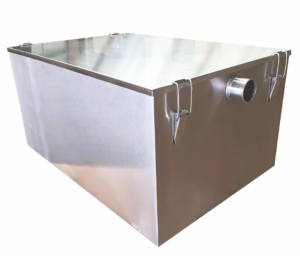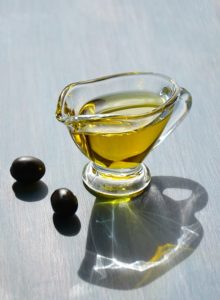
Recently, the way foodservice operators have been disposing of their fats, oils and grease (FOGs) has come under increased scrutiny. This is partly because of the increasing number of stories emphasising the environmental and social impact of the UK’s fatberg problem.
Why Are Water Companies Clamping Down?
FOGs don’t dissolve in water, so if they’re flushed down the sink they cool, congeal, and combine with domestic waste to form giant blockages. Water UK estimates that there are more than 300,000 sewer blockages caused by FOGs each year. Clearing these blockages and cleaning up the flooding and pollution they cause costs the UK in excess of £80 million.
Typically, wastewater from commercial kitchens contains a higher concentration of FOG than domestic kitchens. That’s why it’s businesses and not households which are being held most responsible.
Any uncontrolled discharge of FOG by a foodservice operator, or a failure to act diligently, contravenes Section 111 of the Water Industry Act 1991. If a water company finds that you’ve been flushing the wrong things down the drain, they could prosecute you. If you’re found guilty you could face an unlimited fine or even imprisonment. Also, if the water company have spent any money to clear a blockage you’ve caused, they can claim the costs back from you.
To avoid prosecution, it’s important that you and your staff stop FOG from going down the drain. Here are a few helpful tips:
Top 5 Tips to Avoid the Risk of A Fine from your Local Water Authority
-
Wipe Plates Off Before Rinsing Them

The pot washers and ware washers in all food service businesses have an important role to play in stopping FOG and other food waste entering the sewage system.
Firstly, you should always make sure everyone scrapes leftover food, vegetable peelings, and any grease from plates, pans and utensils into the appropriate waste bin. Then, before washing, wipe plates off using a kitchen towel to remove as much residual FOG as possible and put that into the bin too.
-
Install a Grease Trap
Last year an Indian restaurant in Shrewsbury was ordered to pay a £3,700 fine, a £120 victim surcharge and £5,446 for causing a sewer to overflow and pollute a nearby watercourse. Chris Giles, Head of Network Operations for Severn Trent, said the situation was “totally avoidable” and that “in this case, simply installing a small grease trap could have prevented the situation”.*
Grease traps are something that every foodservice operator should have in place, they are the

Passive or manual grease traps work by slowing down the flow of wastewater coming from the kitchen. The trap’s tank acts as a reservoir and as the wastewater cools the FOG begins to rise to the surface as it is naturally less dense than water. Conversely, any food waste which is denser than water settles at the bottom. The rest of the wastewater is free to enter the drains, while the FOG and food waste remains in the trap to be collected later.
Automatic grease traps have a primary solids filter which can be emptied separately and a small container where all FOG that is syphoned away from greywater is held ready for disposal. Greywater is then free to pass through to the mains sewer system to a water treatment or processing plant.
-
Use Less Oil

Almost all types of food preparation and cooking produce waste FOG. But fast-food restaurants which use a lot of cooking oil are the worst culprits. Where possible it’s best to try to find an alternative to cooking oil. But for some types of food, this simply isn’t possible. Therefore, an easy way to try and reduce the amount of oil your business uses is to strain or filter the oil used in deep fryers to extend its life.
-
Correct Storage and Disposal of Oil
Make sure you store any waste oil in an air-tight container, so it doesn’t attract vermin, and keep it well away from any drains or sinks in case of leaks. Section 34 of the Environmental Protection Act 1990 and the Environmental Protection Act Regulations 1991 requires all commercial kitchens to recycle their waste oil.
The Environment Agency issues “waste transfer notes” to the contractors licensed to collect your oil. For each load of oil they collect you’ll need to fill in either one of these notes or a document with the same information on it, such as an invoice. Alternatively, you can register online to create a season ticket for a series of loads. You’ll need to keep each of these documents in a safe place because you’ll need to produce it for an enforcement officer from your local council or Environment Agency if asked. If you don’t you could be given a £300 fixed penalty notice or face prosecution.
You can find your local licensed waste contractor by going to environment.data.gov.uk.
-
Get an Expert’s Advice
It’s important to remember that water companies don’t issue fines lightly. Where there is evidence that FOG is being discharged, they will initially work with the business responsible to help them meet their legal requirement. Their principal aim is to educate and reduce, not punish. It’s only repeated offenders which receive the worst fines. So, if you think your business has an issue with FOG don’t try and hide it, get help!
Our advice is a great start, but the most important thing is that everyone working for you knows how to get rid of waste from your kitchen properly. Helping them understand why this is important is the most effective way to avoid a fine.

Leave a Comment
Your email address will not be published. Required fields are marked *